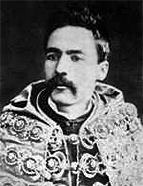

We can still observe his political positions aligned with the liberal constitutional monarchy in Direito Constitucional Português: Estudos sobre a carta constitucional de 1826 e acto Constitucional de 1832 [Portuguese Constitutional Law: Studies on the Constitutional Charter of 1826 and the Constitutional Act of 1832] (1878). He appreciates both the doctrinal and democratic tendencies of the liberal constitutionalists, yet regards himself as independent. He also criticises the aspirations of the socialists while acknowledging the injustices they highlight. He is not a republican, but considers this form of government a viable solution in contexts other than the Portuguese situation. However, he criticises the absolutists and subtly critiques those who waver between the old regime and liberal constitutionalism, as exemplified by Chateaubriand.
The pedagogical framework permeates nearly all of his works, reflecting his role as a disseminator of ideas that were resonating across Europe. He will employ key concepts such as nation, homeland, democracy, and citizenship. In his very first book, he felt compelled to define what "the people" meant to him, using the term "collective individual" and the notion of a collective "consciousness", "reason", "feeling", and "will" as stages that need their own development until they are fully realised, imbuing it with anthropological dimensions or representing a transition from youth to adulthood.
História da Filosofia em Portugal [History of Philosophy in Portugal] will be organised to first capture the philosophical reflections of significant figures within the Portuguese context, then to explore the influences of this philosophical thought at the institutional level (schools, universities), and finally to provide an overview of philosophical thought in Europe, dividing these phases into three respective sections. This structure is subsequently applied to three parts or historical periods selected by the author: one part goes from the 11th century to 1521, another from the latter date to 1706, and lastly from 1706 to 1846. His conception of the constitution of philosophy as a system will closely align with Victor Cousin's frameworks in this work. In critiquing the latter's eclectic philosophy, however, he does not stray from its central tenets, suggesting that this was one of the foundations for his interpretation of European philosophy (particularly the later ones). Also noteworthy is his generous admiration for Kant, despite the obscurities he highlights, from which he gradually distances himself in favour of Krause. He attempts to summarise the modern philosophical schools and trends in Europe, categorising them by country, with the German school occupying twice the space of the other two (French and Scottish). On one hand, he criticises the irreligiosity of the French, claiming it has harmed "the cause of the French nation", while on the other, he commends the contributions of Scottish philosophy in countering the speculative excesses of metaphysics, which he largely associates with religion.
This work is financed by national funds through FCT - Foundation for Science and Technology, I.P, in the scope of the projects UIDB/04311/2020 and UIDP/04311/2020.
